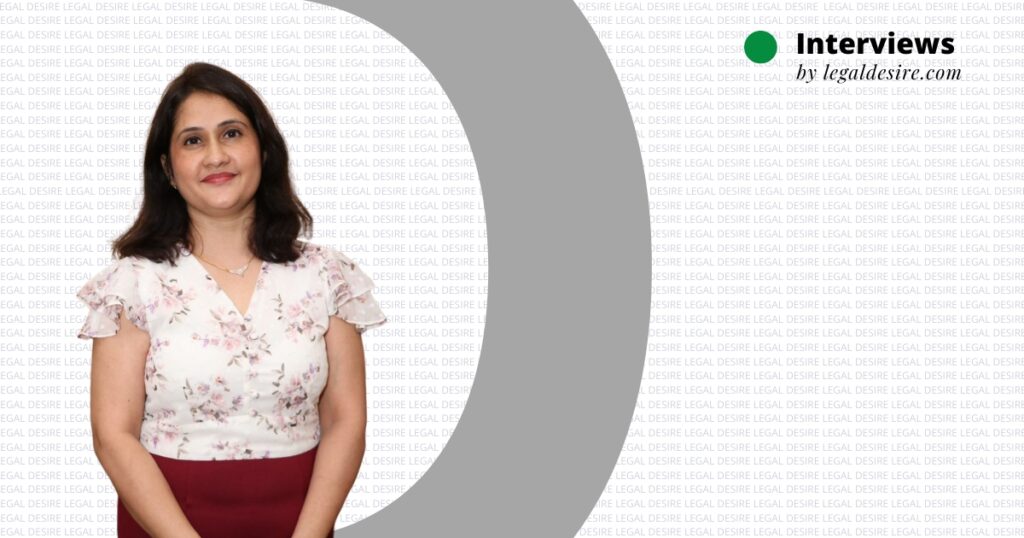Now Reading: In conversation with Ankit Rajgarhia, Senior Associate at Karanjawala & Co about prospects in Alternate and Dispute Resolution
-
01
In conversation with Ankit Rajgarhia, Senior Associate at Karanjawala & Co about prospects in Alternate and Dispute Resolution
In conversation with Ankit Rajgarhia, Senior Associate at Karanjawala & Co about prospects in Alternate and Dispute Resolution
Describe your journey from Law school to current role?
My life at Symbiosis Law School, Pune was blissful not only in terms of academics but also extra-curricular activities. While I was a mediocre student at college, I also made it a point to focus on mooting, articles and extra-curricular activities such as sports or organising university level events.
I was fortunate to be part of organising committee of first ever Symbhav [Symbiosis First ever legal fest, 2008]. In the very first year of college, taking cue from the pattern of other major legal fest in the country, we conceptualised the idea of Symbhav. My role was to spread awareness about Symbhav. Now in its 10th year, Symbhav is one of the major legal events across Indian Law Colleges and Symbhav continues to be a major legal event across Indian Law Colleges not limited to Law Students but other branches of stream in India.
Currently, I’m working in the capacity of Senior Associate, Karanajawala & Co., a leading litigation and dispute resolution law firm based out of New Delhi. My usual day is spent in briefing senior counsels, attending conferences with Senior Advocates, Advocates and General Counsels followed by preparation for upcoming matters including drafting and research. It is very important to stay up to date with the amended laws as well as recent Judgments passed by the Hon’ble Judges of different tribunals. This helps in carving out strategies for the upcoming matters and communicating the same to the clients. According to my father, majority cases are won by thoughtful and out of the box strategies.
What inspired you to pursue career in Civil and Commercial litigation as well as Arbitration and Dispute Resolution?
During my college days apart from academics, I had the opportunity to intern at various organizations, to name a few such as Hon’ble Justice Pradeep Nandrajog, High Court of Delhi; Senior Advocate Jayant Bhushan, Supreme Court of India; Former Additional Solicitor General of India, Mr. Amarjit Singh Chandhiok, High Court of Delhi; Former Additional Solicitor General of India, Mr. P.P. Malhotra, Supreme Court of India; Jyoti Sagar Associates; NGO Pragya etc. While interning at these places the primary responsibilities were working on cases relating to Civil Law, Arbitration, Dispute Resolution, Criminal Law, Administrative Law, Constitution Law and Disputes relating to property apart from visits to Hon’ble Supreme Court of India, High Courts of various Jurisdiction and District Court of Delhi.
These internship experiences not only groomed my practical legal knowledge but also motivated me towards litigation in India. While interning at abovementioned places I had the privilege to work along with Senior Advocates, Managing Partners and other legal personalities which not only taught me the art of drafting but also groomed my drafting and research skills. In my present employment I have realised that to excel in litigation you need to have a good foundation in drafting and court craft and not only be limited to good command in English language.
An aspect of Law that has always been of interest to me is that, law influences almost every facet of our life, and is constantly evolving to keep up with the dynamic changes to which we constantly try to adapt. In particular, I’m always drawn towards Dispute Resolution mainly because it consists of constructive legal argument and an analogy of legal reasoning more often than in many other careers. I strongly believe in following one’s passion and a career in Law has always been my calling.
How is the current scenario in India regarding Alternate and Dispute Resolution? and its image in the country?
As is the practice worldwide, India also prescribes to judicial, quasi-judicial as well as other alternate dispute resolution methods. Beside courts, in certain cases other forums such as tribunals and administrative bodies have been set up and may be approached for resolution of certain disputes. Further, following the international trend, arbitration has also gained India’s popularity as a mode of dispute resolution.
Alternative Dispute Resolution (ADR, sometimes also called “Appropriate Dispute Resolution”) is a general term, used to define a set of approaches and techniques aimed at resolving disputes in a nonconfrontational way. It covers a broad spectrum of approaches, from party-to-party engagement in negotiations as the most direct way to reach a mutually accepted resolution, to arbitration and adjudication at the other end, where an external party imposes a solution. Somewhere along the axis of ADR approaches between these two extremes lies “mediation,” a process by which a third party aids the disputants to reach a mutually agreed solution. The first ADR method to gain acceptance was arbitration, which shared many of its practices and procedures with the judicial system, including the judge (or arbitrator) deciding the outcome of the dispute. ADR has matured and developed, and mediation is being received as a preferred alternative and has become widely accepted as a process providing more flexibility and less procedural complexity.
What has been the hardest case you have faced and how did you handle it?
Every case has its own difficulties and strategies. During my tenure with both my employments, I have handled cases pertaining to Aviation, Medical, Entertainment, Labour, Intellectual Property Rights, Arbitration, Company Law etc.
According to me no brief is small stake or high stake; only the quantum mentioned in the brief is high or small. We enter the profession to learn each and every day and learning is a never ending process for lawyers. In the initial years of profession it is very important to work on all kinds of matters and briefs, to be able to learn from all aspects of Law. Having said that it is also very important to work in different Tribunal/District Courts/ High Courts to be familiar with different working culture of different forums.
The initial art of briefing Senior Counsels is to be thoroughly prepared with the matter as if you have to argue in the court. It is also important to know the latest Judgments or case laws along with respective paragraph numbers, pertaining to the issues involved in your briefs. In order to optimise on the briefing time, it is important to have case note ready to enable you to give quick answers to the queries put forth by Senior Counsels. It is important to be aware of particular styles of working of different Senior Counsels (for example some would start with prayer of the brief and the others would start with brief facts of the case).
While it is important to assist Senior Counsels through the matter, it is equally necessary to be able to put forth your suggestion with reasoned logic before the Senior Counsel. I personally feel that no reasonable suggestion given is a wrong suggestion.
In your view, what are the major problems/opportunities facing the legal industry?
According to me major problem facing the legal industry are :
- Backlog of Pending Cases :- India’s legal system has the largest backlog of pending cases throughout the world. It has always been discussed to increase the number of judges, creating more courts, but implementation is late or inadequate.
- Lack of Transparency: It is seen that the Right to Information Act is totally out of ambit of legal system. Thus, in the functioning of the judiciary, the substantial issues like the quality of justice and accountability are not known properly.
- Hardships of the undertrials: In Indian jails, most of the prisoners are undertrials, who are confined to the jails till their case comes to a definite conclusion.
- No Interaction with the Society :- In order to form an effective judiciary, is necessary that the judiciary form an integral part of the society. Judiciary’s interaction with society is a must and it should be both regular and relevant. Several countries involve their citizens in judicial decision making, however, in India, there is no such setup. The citizens need to actively take part in judicial activities to build an effective judicial system.
How to speed up the Indian Judicial System:-
- To increase the strength of the judiciary
- To keep courts open throughout the year.
- Proper modernization of courts
- Introduction of fast-track courts
- To do away with the archaic laws
- Non-acceptance of flippant cases
What is your advice to young lawyers on how to identify area of interest and factors to be considered before pursuing career in that?
My advice to all the young lawyers and law graduates entering the profession –
- Plan before you act.
- Read a lot but do not just read; understand the law as well and implement it accordingly.
- There must be clarity in your thought process and the same must be reflected in your drafts and correspondence.
- Be confident and professional in your approach!
- Do not be shy or hesitant in seeking help from seniors when in need.
- Be ready to fail, learn from failures and keep moving forward. If you lose a case, take it as an opportunity to learn and move on.
- Hard work! [I am a firm believer that hard work pays one day and there is no substitute for hard work]
- Lastly, Lawyers are made by the society, whatever a person is today is because of society therefore, one must give it back to the society [Always help others, in whatever way you can].
- Take no short cuts in litigation. Progress to higher level could be slow, but remember to never jump steps.
- Litigation demands confidence to be able to argue in front of the judge. So work on building confidence by interacting and networking.
Share your feedbacks/leads for interview on info@legaldesire.com








